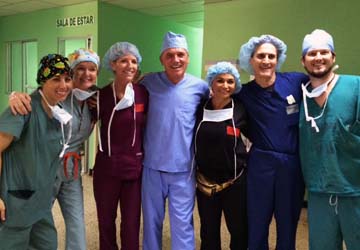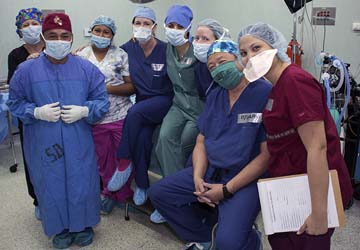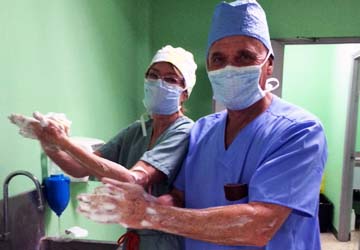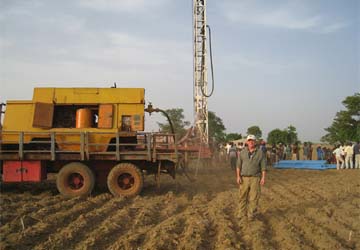The process of Opportunity Evaluation begins months before a candidate is actually selected. Our research on areas of interest include research of needs in various areas of the world. Our team communicates with the local government Ministry of Health, other doctors, medical organizations, NGOs and agencies with active projects in the area. We seek to identify knowledgeable individuals with local knowledge and experience in the area to eliminate sites that will not meet the trip criteria. We also seek to communicate with other medical teams that have made prior trips to the region. The region is then followed up with a trip qualification visit which typically in May / June with an in depth, on site pre-trip inspection and hospital selection process. The qualification of the hospital is based upon a written qualification provided by SOS to the Ministry of Health and other medical organizations with knowledge of the region. We have found that our efforts to work with a carefully qualified recipient organization will ensure appropriate delivery and use of the donated medical relief. The Ministry will review their hospitals that meet the criteria and requirements provided by Sustainable Outreach Solutions and create a list of potential hospitals. The Pre-Trip Qualification Team travels to the region typically for 5 to 7 days to visit the hospitals, inspect the surgical suites, pre-op and post-op care areas and review the patient case load. The local hospitals will typically present their capabilities, history and recommendations to the screening committee. At the same time, the screening committee will review the local hotels and restaurants for capabilities and capacity. Each hospital will have a list of requested or recommended equipment needs, medical supplies needed and expected patient case load expectation. This is developed along with the agreement of the local hospital as they will be responsible for pre-screening the patients.
Each hospital to be visited has already been evaluated, scored and a recommendation prepared for the Executive Committee. The Pre-Trip Qualification Team will also provide a budget estimate including the cost of travel, hotels, meals and transportation of materials. The PTQT will also include a list of requested equipment and medical supplies to be donated to the hospital. The Trip Plan will also include recommended travel dates and trip duration avoiding local holidays and unfavorable weather which impacts travel for the team and patients.
The Executive Committee will then review the recommendations and make a final decision for the hospital, number of surgical teams (typically 2 to 4 teams), recommended leaders and determine a budget for the trip.
The Trip Committee, composed of a Director or Lead Doctor/Engineer and other recommended leaders with a variety of skills will complete the Trip Plan. The Trip Plan will include travel dates, travel arrangements, document requirements, staffing plan, number of people allowed, specialties or skills required for the case load, equipment needs, donations needed, packaging and transportation of the equipment and medical supplies. The volunteers typically pay a portion of their own expenses to travel to the country. The volunteer list selected from volunteer medical and engineering professionals that are qualified and licensed in their individual professions is reviewed and the first round of invitations is sent to the people that have requested consideration. The list of personnel is developed based upon the availability of the staffing with paid time off, expense cost and number of available slots with specific qualifications. The SOS organization will provide a limited number of scholarships for some mission critical personnel considered necessary to the mission but otherwise would not be able to attend due to cost. The majority of the attendees are responsible for their own airfare ($400 – $1,200) as part of their personal or corporate commitment. Additionally, 30 or more companies and individuals have contributed money, supplies and medical equipment to the efforts.






